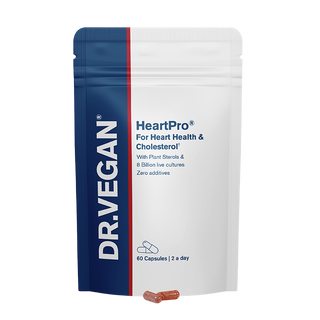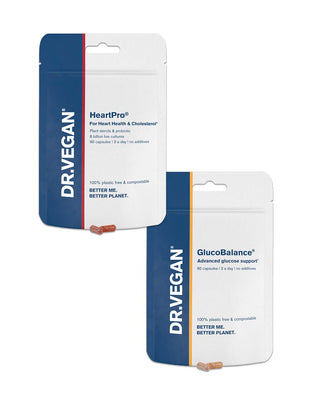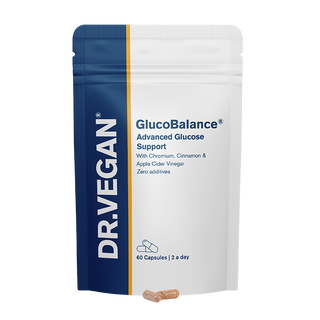Ultra-processed foods: dangers & how to avoid them

By: Shona Wilkinson
In today's fast-paced, modern world, convenience often takes precedence over what's actually healthy for us, leading many people to rely on ultra-processed foods (UPFs). But what exactly are UPFs and why are they considered harmful? Here we dive into the world of ultra-processed foods, exploring what makes them detrimental to our health, how to identify them and easy ways to make healthier choices.
What are ultra-processed foods?
Ultra-processed foods, also known as UPFs, are products created in industrial food processing. They typically contain multiple ingredients, many of which are unrecognisable to the average person. UPFs often undergo extensive processing, involving high levels of sugar or sugar alternatives such as stevia or aspartame, unhealthy fats, artificial additives and little to no whole foods. You may also enjoy reading 'Exposed: Plant-sweeteners and Type 2 diabetes' and 'Debunking the Biggest Food Myths'.
What's your diet missing? Create your free Diet Profile and find out.
Dangers of Ultra-Processed Foods
- Nutrient deficiency: UPFs are generally stripped of essential nutrients and fibre during processing. Consuming them can lead to nutrient deficiencies, as they lack the vitamins and minerals found in whole, unprocessed foods. You can find out what your diet is missing and the nutrients your body needs by creating your free Diet Profile in just three minutes.
- High sugar and salt: UPFs are notorious for their excessive sweeteners, sugar or salt content, contributing to health issues like high blood pressure, heart disease and obesity. We also recommend reading 'Is sugar actually that bad for you?' and 'Why fibre in your diet is essential'.
- Artificial additives: Many UPFs contain artificial sweeteners, flavours, colours and preservatives, which have been linked to various health concerns, including allergies and behavioural issues in children.
Identifying Ultra-Processed foods
The NOVA Classification System categorises foods into four groups based on their level of processing:
- Unprocessed or minimally processed foods. These include fresh fruits, vegetables, nuts and seeds.
- Processed culinary ingredients. Includes oils, butter and sugar.
- Processed foods. Includes tinned vegetables and cheese, for example.
- Ultra-processed foods. Meal replacement and protein shakes, fizzy drinks, fast food and frozen pizza.
Most common ultra-processed foods
- Sugary beverages like soda and energy drinks.
- Fast food items including burgers, fries and chicken nuggets.
- Packaged snacks like chips, cookies and candy.
- Microwaveable meals and frozen pizzas.
- Instant noodles and soups.
- Sugary breakfast cereals and pastries.
- Protein powders and meal replacement shakes.
Unfortunately, all powder shakes and meal replacements are ultra-processed foods. They generally contain artificial ingredients to add flavour and create long shelf lives to be shipped across the world. Learn more in 'Ingredients to avoid in supplements'.
Processed foods undergo some level of modification, but they can still contain whole food ingredients. Examples include tinned vegetables, cheese and smoked meats. In contrast, ultra-processed foods are created using industrial techniques and have a long list of additives, making them a far cry from their whole food origins.
Surprising sources of ultra-processed foods
Plant-based milk and bread may seem like healthier alternatives, but not all are created equal. Some plant-based milks contain added sugars and artificial flavours, pushing them into the ultra-processed category. Similarly, many commercially produced breads include preservatives and additives that can transform them into UPFs.
Discover whether oat milk is good or bad for you and you may enjoy reading about the health benefits of soya.
Health risks associated with UPFs
Studies suggest that consumption of UPFs can increase the risk of high blood pressure, heart disease, heart attacks and strokes. The excessive salt and unhealthy fats found in many UPFs can contribute to hypertension, a major risk factor for these conditions. Reducing UPF intake can be a crucial step in improving heart health.
We recommend reading 'Warning signs of a heart attack' and '5 cholesterol myths busted'.
HeartPro®

Can you avoid ultra-processed foods?
While some people find it challenging to eliminate UPFs entirely, you can significantly reduce your consumption by adopting these habits:
- Cook at home: Preparing meals from scratch using whole, unprocessed ingredients gives you control over what goes into your food.
- Read labels: Always #CheckTheLabel. Check food labels for excessive sugar, salt and additives. Choose products with shorter ingredient lists and recognisable components. Learn more in 'Animal ingredients in supplements - what you need to know' and 'Check your labels for these ingredients'.
- Choose whole foods: Opt for fresh fruits, vegetables, whole grains and lean proteins over packaged and processed alternatives.
Healthier swaps
Instead of reaching for UPFs, consider these healthier alternatives:
- Replace soda with sparkling water or herbal tea.
- Choose wholegrain bread without additives.
- Snack on fresh fruit, veggies or nuts.
- Prepare homemade popcorn instead of microwaveable varieties.
- Enjoy homemade pizza with a whole wheat crust and fresh toppings.
Live Long Bundle

Reducing your intake of ultra-processed foods can significantly benefit your health. These highly processed products are often packed with unhealthy additives, excessive sugar and salt, making them a risky choice for your wellbeing. By making informed food choices, prioritising whole, unprocessed options and cooking more meals at home, you can take control of your diet and work towards a healthier future. Your body will thank you for it.
Discover our range of award-winning vegan supplements and probiotics.
You may also enjoy reading:
- 4 things to watch out for when buying supplements
- Best foods for Type 2 diabetes
- Is sugar actually that bad for you?
- Nutritionist advice for healthy weight loss
- Why the hype about Apple Cider Vinegar?
- Does sperm impact the risk of diabetes?
Want to hear more from our nutritionists? Sign up to our email newsletter for insights and exclusive offers:


















